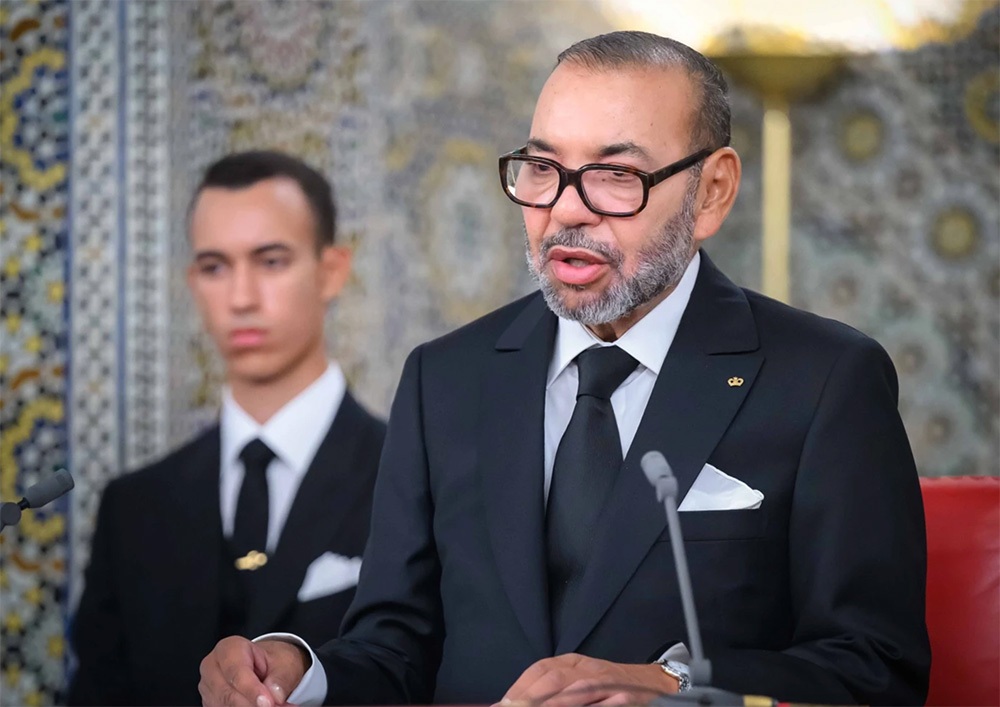As North Africa grapples with growing geopolitical uncertainty, water scarcity, and the lingering effects of post-pandemic economic shifts, Morocco has chosen a path of strategic calm and internal rebalancing. In a landmark Throne Day speech delivered on July 29, 2025, King Mohammed VI of Morocco offered more than a national address — he presented a long-term roadmap that positions his country as a pillar of regional stability and equitable development.
“There is no level of economic growth that would satisfy me if it does not lead to improved living conditions for all citizens,” King Mohammed VI declared in a message that blended social compassion with strategic realism.
At the heart of the speech lies a significant policy shift: the King is moving away from traditional, top-down models of social development and embracing what he calls “territorially integrated development.” The goal is to break the dual-speed nature of Morocco’s development — where some regions thrive while others remain stagnant — by investing in localized growth.
The new model revolves around four key pillars: generating regional employment through local entrepreneurship and investment; ensuring basic access to health and education; developing water security in the face of worsening drought; and upgrading infrastructure in ways that connect local and national initiatives.
While rooted in domestic needs, this rebalancing has a geopolitical subtext: resilient nations require resilient territories. An unequal, fragmented society is vulnerable not just to economic stress, but also to political instability and external interference.
Since ascending to the throne in 1999, King Mohammed VI has methodically repositioned Morocco as a modern, globally integrated economy and a diplomatic actor with global reach. His speech reiterated these achievements — but without complacency. Morocco was recently elevated to the UN category of “high human development,” and its industrial exports have more than doubled since 2014, particularly in automotive manufacturing, aerospace, renewables, agribusiness, and tourism.
The country’s global connectivity is another major asset. Through a broad network of free trade agreements, Morocco now has preferential access to over three billion consumers worldwide. Its infrastructure, which includes the continent’s first high-speed rail line and a modern port network, supports its ambition to become a logistics and industrial hub between Europe, Africa, and the Middle East.
These achievements are not just economic milestones — they are strategic levers that give Morocco a seat at the table in shaping the future of the Global South. By combining economic openness with political stability and social investment, Morocco is offering an alternative model of emerging nationhood.
One of the most politically sensitive moments of the speech came when King Mohammed VI addressed Morocco’s long-frayed relationship with neighboring Algeria. Despite the rupture of diplomatic ties by Algiers in 2021, the King extended a fresh appeal for reconciliation.
“As King of Morocco, my position is clear and consistent: the Algerian people are our brothers. We are bound by language, religion, geography, and a shared destiny,” he stated, emphasizing the Kingdom’s readiness for “a sincere and responsible dialogue.”
This overture is significant. It signals not only a desire to reduce regional tensions but also a calculated effort to frame Morocco as the adult in the room — a country committed to peace and integration, even in the face of unilateral hostility. The King linked this outreach to his broader call for a revived Maghreb Union, suggesting that regional cooperation cannot move forward without a rapprochement between Morocco and Algeria.
While much of the speech was domestically focused, its implications extend far beyond Morocco’s borders. By coupling a call for internal equity with a message of regional diplomacy, King Mohammed VI is articulating a vision of statecraft grounded in stability, credibility, and long-term thinking — a model that is increasingly rare in a world driven by short-termism and political volatility.
At a time when many nations in North Africa are facing social unrest, currency pressures, or uncertain transitions, Morocco is doubling down on its institutional foundations and civic contract. The King’s speech makes clear that the Kingdom’s legitimacy — both at home and abroad — rests not only on GDP growth, but on cohesion, inclusion, and leadership.






